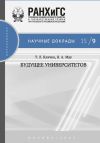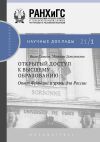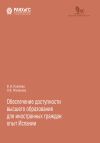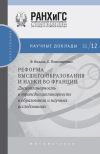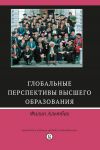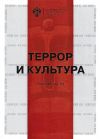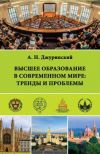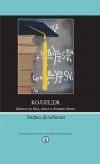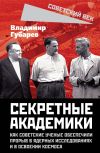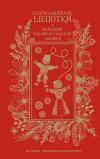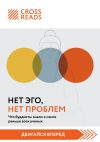Текст книги "Модель Нового американского университета"
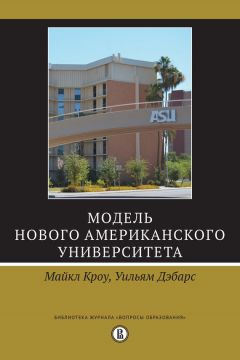
Автор книги: Майкл Кроу
Жанр: Прочая образовательная литература, Наука и Образование
сообщить о неприемлемом содержимом
Текущая страница: 26 (всего у книги 27 страниц)
Etzkowitz H. Entrepreneurial Scientists and Entrepreneurial Universities in American Academic Science // Minerva. 1983. Vol. 21. P. 1–21.
Etzkowitz H. Research Groups as Ouasi-firms: The Invention of the Entrepreneurial University // Research Policy. 2003. Vol. 32. P. 109–121.
Etzkowitz H. The Triple Helix: University-Industry-Government Innovation in Action. New York: Routledge, 2008.
Feldman M.R Entrepreneurship and American Research Universities: Evolution in Technology Transfer // The Emergence of Entrepreneurship Policy: Governance, Start-ups, and Growth in the U.S. Knowledge Economy / ed. by D.M. Hart. Cambridge: Cambridge University Press, 2003. P. 92–112.
Feldman M.P. The New Economics of Innovation, Spillovers, and Agglomeration: Review of Empirical Studies I I Economics of Innovation and New Technologies. 1999. Vol. 8. P. 5–25.
Florida R. The Rise of the Creative Class: And How It Is Transforming Work, Leisure, Community, and Everyday Life. New York: Basic Books, 2002.
Fogel D.M. Challenges to Equilibrium: The Place of the Arts and Humanities in Public Research Universities // Precipice or Crossroads: Where America’s Great Public Universities Stand and Where They Are Going Midway through Their Second Century / ed. by D.M. Fogel. Albany: State University of New York Press, 2012. P. 241–257.
Frodeman R. Interdisciplinarity, Communication, and the Limits of Knowledge // Enhancing Communication and Collaboration in Interdisciplinary Research/ed. by M. O’Rourke, S. Crowley, S.D. Eigen-brode, J.D. Wulfhorst. Los Angeles: Sage, 2013. P. 103–116.
Frodeman R. Sustainable Knowledge: A Theory of Interdisciplinarity. Basingstoke: Palgrave Macmillan, 2014.
Frodeman R., Klein J.T., Mitcham C. (eds). The Oxford Handbook of Interdisciplinarity. Oxford: Oxford University Press, 2010.
Frodeman R., Mitcham C. New Directions in Interdisciplinarity: Broad, Deep, and Critical // Bulletin of Science, Technology, and Society. 2007. Vol. 27. No. 6 (December). P. 506–514.
Galison P. Image and Logic: A Material Culture of Physics. Chicago: University of Chicago Press, 1997.
Gawande A. Big Med: Should Hospitals Be More Like Chain Restaurants?//New Yorker. 2012. August 13. P. 52–63.
Gee G. Colleges Face Reinvention or Extinction I I Chronicle of Higher Education. 2009. February 9.
Geiger R.L. Knowledge and Money: Research Universities and the Paradox of the Marketplace. Stanford: Stanford University Press, 2004.
Geiger R.L. Milking the Sacred Cow: Research and the Quest for Useful Knowledge in the American University since 1920 // Science, Technology, and Human Values. 1988. Vol. 13. No. 3–4 (Summer-Autumn). P. 332–348.
Geiger R.L. Organized Research Units: Their Role in the Development of the Research University // Journal of Higher Education. 1990. Vol. 61. No. 1 (January/February). P. 1–19.
Geiger R.L. Research and Relevant Knowledge: American Research Universities since World War II. Oxford: Oxford University Press, 1993.
Geiger R.L. Science, Universities, and National Defense, 1945–1970// Osiris. 2nd series. 1992. No. 7. P. 26–48.
Geiger R.L. The Ten Generations of American Higher Education // Higher Education in the Twenty-First Century: Social, Political, and Economic Challenges. 3rd ed. // ed. by Ph.G. Altbach, P.J. Gumport, R.O. Berdahl. Baltimore: Johns Hopkins University Press, 2011. P. 37–68.
Geiger R.L. To Advance Knowledge: The Growth of American Research Universities, 1900–1940. Oxford: Oxford University Press, 1986.
Gersick C.J.G. Revolutionary Change Theories: A Multilevel Exploration of the Punctuated Equilibrium Paradigm // Academy of Management Review. 1991. Vol. 16. No. 1. P. 10–36.
Giddens A. The Constitution of Society: Outline of the Theory of Structuration. Berkeley: University of California Press, 1984.
Golden D. The Price of Admission: How America’s Ruling Class Buys Its Way into Elite Colleges – And Who Gets Left Outside the Gates. New York: Crown, 2006.
Goldin C., Katz L.F. The Race between Education and Technology. Cambridge, MA: Belknap Press of Harvard University Press, 2008.
Goldstein R. Plato at the Googleplex: Why Philosophy Won’t Go Away. New York: Pantheon, 2014.
Gordon R.J. The Demise of U.S. Economic Growth: Restatement, Rebuttal, and Reflections: NBER Working Paper 19895. Cambridge, MA: National Bureau of Economic Research, February 2014.
Grafton A. Can the Colleges Be Saved? Review of Andrew Delbanco, College: What It Was, Is, and Should Be (Princeton, NJ: Princeton University Press, 2012) // New York Review of Books. 2012. May 24.
Graham H.D., Diamond N. The Rise of American Research Universities: Elites and Challengers in the Postwar Era. Baltimore: Johns Hopkins University Press, 1997.
Gray H.H. Searching for Utopia: Universities and Their Histories. Berkeley: University of California Press, 2012.
Gross D. The Past in Ruins: Tradition and the Critique of Modernity. Amherst: University of Massachusetts Press, 2009.
Guston D.H., Keniston K. The Social Contract for Science I I The Fragile Contract: University Science and the Federal Government / ed. by D.H. Guston, K. Keniston. Cambridge, MA: MIT Press, 1994.
Haas P.M. Epistemic Communities and International Policy Coordination// International Organization. 1992. Vol. 46. No. 1. P. 1–35.
Habermas J. Postscript // Habermas and Pragmatism / ed. by M. Adou-lafia, M. Bookman, C.Kemp. London: Routledge, 2002.
Habermas J. The Theory of Communicative Action. Vol. 2: Reason and the Rationalization of Society / transl. by T. McCarthy. Cambridge, MA: MIT Press, 1987.
Hacker A. Is Algebra Necessary? // New York Times. 2012. July 28.
Hacker A., Dreifus C. Higher Education? How Colleges Are Wasting Our Money and Failing Our Kids – And What We Can Do about It. New York: Henry Holt and Company, 2010.
Hacking I. Historical Ontology. Cambridge, MA: Harvard University Press, 2002.
Hagel J., Brown J.S., Davison L. The Power of Pull: How Small Moves, Smartly Made, Can Set Big Things in Motion. New York: Basic Books, 2010.
Hannan M.T., Freeman J. Structural Inertia and Organizational Change // American Sociological Review. 1984. Vol. 49. April. P. 149–164.
Hart D.M. Entrepreneurship Policy: What It Is and Where It Came From // The Emergence of Entrepreneurship Policy: Governance, Start-ups, and Growth in the U.S. Knowledge Economy / ed. by
D. M. Hart. Cambridge: Cambridge University Press, 2003. HartD.M. (ed.). The Emergence of Entrepreneurship Policy: Governance, Start-ups, and Growth in the U.S. Knowledge Economy. Cambridge: Cambridge University Press, 2003.
Hawkins H.H Charles W. Eliot: University Reform and Religious Faith in America, 1869–1909 // The Journal of American History. 1964. Vol. 51. No. 2 (September). P. 191–213.
Heller D.E. State Support of Higher Education: Past, Present, and Future // Privatization and Public Universities / ed. by D.M. Priest,
E. P. St. John. Bloomington: Indiana University Press, 2006. P. 11–37. Hoachlander G., Sikora A.C., Horn L Community College Students //
Education Statistics Quarterly. 2003. Vol. 5. No. 2. P. 121–128. Hofstadter R., Hardy C.D. The Development and Scope of Higher Education in the United States. New York: Columbia University Press for the Commission on Financing Higher Education, 1952. Holland J. Complex Adaptive Systems // Daedalus. 1992. Vol. 121. No. l.P. 17–30.
HolznerB. Reality Construction in Society. Cambridge, MA: Schenk-man, 1968.
HosslerD. et al. State Funding for Higher Education: The Sisyphean Task // Journal of Higher Education. 1997. Vol. 68. No. 2 (March/ April). P. 160–190.
Howard N. The Book: The Life Story of a Technology. Baltimore: Johns Hopkins University Press, 2009.
Institute of Higher Education, Shanghai Jiao Tong University. Academic Ranking of World Universities. <http://www. shanghairanking. com/ARWU 2011. html >. faimovich N., Siu H.E. The Trend Is the Cycle: Job Polarization and Jobless Recoveries: NBER Working Paper 18334. Cambridge, MA: National Bureau of Economic Research, 2012 (August).
Jay M. Force Fields: Between Intellectual History and Cultural Critique. New York: Routledge, 1993.
Jay M. Songs of Experience: Modern American and European Variations on a Universal Theme. Berkeley: University of California Press, 2005.
Jones C.I. Sources of U.S. Economic Growth in a World of Ideas // American Economic Review. 2002. Vol. 92. No. 1. P. 220–239.
Jørgensen T.B.,Bozeman B. Public Values: An Inventory // Administration and Society. 2007. Vol. 39. No. 3 (May). P. 354–381.
Joseph M. The Trivium: The Liberal Arts of Logic, Grammar, and Rhetoric. Philadelphia: Paul Dry Books, 1982. P. 1–9.
Karabel J. The Chosen: The Hidden History of Admission and Exclusion at Harvard, Yale, and Princeton. New York: Houghton Mifflin, 2005.
Kash D.E. Perpetual Innovation: The New World of Competition. New York: Basic Books, 1989.
Katz D., Kahn R.L. The Social Psychology of Organizations. New York: Wiley, 1966.
Kenney M., Burg U. von. Technology, Entrepreneurship, and Path Dependence: Industrial Clustering in Silicon Valley and Route 128 // Industrial and Corporate Change. 1999. Vol. 8. No. 1. P. 67–103.
Keohane N.O. The American Campus: From Colonial Seminary to Global Multiversity. Wolfson College Lecture Series 1998 – The Idea of a University. Oxford University, 1998. February 3.
Kerr C. The Gold and the Blue: A Personal Memoir of the University of California (1949–1967). Vol. 1: Academic Triumphs; Vol. 2: Political Turmoil. Berkeley: University of California Press, 2001–2003.
Kerr C. Higher Education Cannot Escape History: Issues for the Twenty-First Century. Albany: SUNY Press, 1994.
Kerr C. The Uses of the University. 5th ed. Cambridge, MA: Harvard University Press, 2001 [1963].
Kerr C. The Uses of the University Two Decades Later: Postscript 1982//Change. 1982. Vol. 14. October. P. 23–31.
Kevles D.J. The National Science Foundation and the Debate over Postwar Research Policy, 1942–1945: A Political Interpretation of Science – The Endless Frontier // Isis. 1977. Vol. 68. No. 241. P. 4–26.
Kirp D.L Shakespeare, Einstein, and the Bottom Line: The Marketing of Higher Education. Cambridge, MA: Harvard University Press, 2003.
Kitcher P. Science, Truth, and Democracy. Oxford: Oxford University Press, 2001.
Klein J.T. Interdisciplinarity: History, Theory, and Practice. Detroit, MI: Wayne State University Press, 1990.
Klein J.T. A Taxonomy of Interdisciplinarity// The Oxford Handbook of Interdisciplinarity / ed. by R. Frodeman, J.T. Klein, C. Mitcham. Oxford: Oxford University Press, 2010. P. 15–30.
Klenow P.J., Rodriguez-Clare A. The Neoclassical Revival in Growth Economics: Has It Gone Too Far? // NBER Macroeconomics Annual. 1997. Vol. 12. P. 73–103.
Kotkin DeVol R. Knowledge-Value Cities in the Digital Age. Santa Monica: Milken Institute, 2001.
Kristof N. Smart Minds. Slim Impact // New York Times. 2014. February 16.
Kuhn T.S. The Structure of Scientific Revolutions. 3rd ed. Chicago: University of Chicago Press, 1996 [1962].
Lemann N. The Soul of the Research University// Chronicle of Higher Education. 2014. April 28.
Leslie S.W. The Cold War and American Science: The Military-Industrial-Academic Complex at MIT and Stanford. New York: Columbia University Press, 1993.
Levine L.W. The Opening of the American Mind: Canons, Culture, and History. Boston: Beacon Press, 1996.
Liedman S.-E. General Education in Germany and Sweden // The European and American University since 1800: Historical and Sociological Essays / ed. by S. Rothblatt, B. Wittrock. Cambridge: Cambridge University Press, 1993.
Lightman A., Sarewitz D., Desser C. (eds). Living with the Genie: Essays on Technology and the Quest for Human Mastery. Washington DC: Island Press, 2003.
Lingenfelter P.E. The Financing of Public Colleges and Universities in the United States I I Handbook of Research in Education Finance and Policy / ed. by H.F. Ladd, E.B. Fiske. New York: Routledge, 2008.
Link A. Woodrow Wilson // A Princeton Companion / compil. by A. Leitch. Princeton, NJ: Princeton University Press, 1978.
Lombardi J.V. How Universities Work. Baltimore: Johns Hopkins University Press, 2013.
Löwen R.S. Creating the Cold War University: The Transformation of Stanford. Berkeley: University of California Press, 1997.
Lundvall B.-E. Innovation as an Interactive Process: From User-Producer Interaction to National Systems of Innovation // Technical Change and Economic Theory / ed. by G. Dosi et al. London: Pinter, 1988.
Machlup F. Knowledge: Its Creation, Distribution, and Economic Significance. Vol. II: The Branches of Learning. Princeton, NJ: Princeton University Press, 1982.
Macilwain C. The Arizona Experiment I I Nature. 2007. Vol. 446. No. 7139 (April).
Madsen D. The National University: Enduring Dream of the United States. Detroit: Michigan State University Press, 1966.
Mansfield E. Academic Research and Industrial Innovation I I Research Policy. 1991. Vol. 20. P. 1–12.
March J.G., Simon H.A. Organizations. 2nd ed. Cambridge, MA: Blackwell, 1993.
Marcus S. Humanities from Classics to Cultural Studies: Notes toward the History of an Idea I I Daedalus. 2006. Vol. 135. No. 2 (Spring). P. 15–21.
Marsden G.M. The Soul of the American University: From Protestant Establishment to Established Nonbelief. New York: Oxford University Press, 1994.
Mau В., Leonard J. Massive Change. London: Phaidon Press, 2004.
Mayer J. State for Sale I I New Yorker. 2011. October 10.
McClelland C.E. State, Society, and University in Germany, 1700–1914. Cambridge: Cambridge University Press, 1980.
McNamee S.J., Miller R.K. The Meritocracy Myth. 2nd ed. Lanham: Rowman and Littlefield, 2009.
McPherson M.S., Schapiro М.О. Economic Challenges for Liberal Arts Colleges // Distinctively American: The Residential Liberal Arts College / ed. by S. Koblik, S.R. Graubard. New Brunswick, NJ: Transaction, 2000. P. 47–76.
Meacham J. Thomas Jefferson: The Art of Power. New York: Random House, 2012.
Meadows D.H., Meadows D.L., Panders J., Behrens W.W. The Limits to Growth: A Report for the Club of Rome’s Project on the Predicament of Mankind. New York: Universe, 1972.
Menand L. College: The End of the Golden Age//New York Review of Books. 2001. October 18.
Menand L. The Marketplace of Ideas: Reform and Resistance in the American University. New York: W.W. Norton and Company, 2010.
Menand L. The Metaphysical Club: A Story of Ideas in America. New York: Farrar, Straus and Giroux, 2001.
Merton R.K. On the Shoulders of Giants: A Shandean Postscript. Chicago: University of Chicago Press, 1993.
Merton R.K. The Sociology of Science: Theoretical and Empirical Investigations. Chicago: University of Chicago Press, 1973.
Merton R.K., Barber E. The Travels and Adventures of Serendipity: A Study in Sociological Semantics and the Sociology of Science. Princeton, NJ: Princeton University Press, 2004.
Mettler S. Degrees of Inequality: How the Politics of Higher Education Sabotaged the American Dream. New York: Basic Books, 2014.
Metzger W.P. The Academic Profession in the United States // The Academic Profession: National, Disciplinary, and Institutional Settings / ed. by B.R. Clark. Berkeley: University of California Press, 1987. P. 123–208.
Miller H.T., Fox C.J. The Epistemic Community//Administration and Society. 2001. Vol. 32. No. 6. P. 668–685.
Mokyr J. The Gifts of Athena: Historical Origins of the Knowledge Economy. Princeton. NJ: Princeton University Press, 2002.
Mokyr J. The Lever of Riches: Technological Creativity and Economic Progress. Oxford: Oxford University Press, 1990.
Moretti E. Estimating the Social Return to Higher Education: Evidence from Longitudinal and Repeated Cross-sectional Data I I Journal of Econometrics. 2004. Vol. 121. P. 175–212.
Mortenson T. Bachelor’s Degree Attainment by Age 24 by Family Income Quartiles, 1970–2010. Oskaloosa, IA: Pell Institute for the Study of Opportunity in Higher Education, 2010.
Mortenson T. et al. Why College? Private Correlates of Educational Attainment // Postsecondary Education Opportunity: The Mortenson Research Seminar on Public Policy Analysis of Opportunity for Postsecondary Education. 1999. Vol. 81. March.
Mowery D.C., Nelson R.R., Sampat B.N., Ziedonis A.A. The Growth of Patenting and Licensing by U.S. Universities: An Assessment of the Effects of the Bayh-Dole Act of 1980 // Research Policy. 2000. Vol. 30. P. 99–119.
Mowery D.C., Nelson R.R., Sampat B.N., Ziedonis A.A. Ivory Tower and Industrial Innovation: University-Industry Technology Transfer before and after the Bayh-Dole Act. Stanford: Stanford University Press, 2004.
Mowery D.C., Rosenberg N. Paths of Innovation: Technological Change in Twentieth-Century America. Cambridge: Cambridge University Press, 1998.
Mumper M., Gladieux L.E., King J.E., Corrigan M.E. The Federal Government and Higher Education // American Higher Education in the Twenty-First Century: Social, Political, and Economic Challenges. 3rd ed. / ed. by Ph.G. Altbach, P.J. Gumport, R.O. Berdahl. Baltimore: Johns Hopkins University Press, 2011. P. 113–138.
Murray C. Narrowing the Class Divide // New York Times. 2012. March 7.
Narin F.. Hamilton K., Olivastro D. The Increasing Linkage between U.S. Technology and Public Science // Research Policy. 1997. Vol. 26. P. 317–330.
National Academies. Committee on Facilitating Interdisciplinary Research and Committee on Science, Engineering, and Public Policy. Facilitating Interdisciplinary Research. Washington, DC: National Academies Press, 2005.
National Academies. Committee on Prospering in the Global Economy of the Twenty-First Century. Capitalizing on Investments in Science and Technology. Washington, DC: National Academies Press, 1999.
National Academies. Rising above the Gathering Storm: Energizing and Employing American for a Brighter Economic Future. Washington, DC: National Academies Press, 2007.
National Academies. Rising above the Gathering Storm Revisited: Rapidly Approaching Category 5. Washington, DC: National Academies Press, 2010.
National Research Council. Convergence: Facilitating Transdiscipli-nary Integration of Life Sciences, Physical Sciences, Engineering, and Beyond. Washington, DC: National Academies Press, 2014.
National Research Council. Committee on Management of University Intellectual Property. Managing University Intellectual Property in the Public Interest. Washington, DC: National Academies Press, 2011.
National Research Council. Committee on Research Universities. Research Universities and the Future of America: Ten Breakthrough Actions Vital to Our Nation’s Prosperity and Security. Washington, DC: National Academies Press, 2013.
Nelson R.R. The Simple Economics of Basic Scientific Research//Journal of Political Economy. 1959. Vol. 67. No. 3 (June). P. 297–306.
Nelson R.R., Buterbaugh K., Perl M., Gelijns A. How Medical Know-How Progresses I I Research Policy. 2011. Vol. 40. P. 1339–1344.
Nelson R.R., Winter S.G. An Evolutionary Theory of Economic Change. Cambridge, MA: Harvard University Press, 1982.
Nevins A. The State Universities and Democracy. Urbana: University of Illinois Press, 1962.
New field C. The End of the American Funding Model: What Comes Next? I I American Literature. 2010. Vol. 82. No. 3 (September). P. 611–635.
Newman J.H. The Idea of a University. Notre Dame: University of Notre Dame Press, 1982 (reprint of the edition published by Longmans, Green, and Company, 1873).
Niosi J., Saviotti P, Bellon B., Crow M.M. National Systems of Innovation: In Search of a Workable Concept // Technology in Society. 1993. Vol. 15. P. 207–227.
Noer M. America’s Top Colleges // Forbes. 2012. August 20.
Nussbaum M. Not for Profit: Why Democracy Needs the Humanities. Princeton, NJ: Princeton University Press, 2010. Рус. nep.: Hyccбаум M. He ради прибыли: зачем демократии нужны гуманитарные науки. М.: Изд. дом ВШЭ, 2014.
Oleson A., Voss J.(eds). The Organization of Knowledge in Modern America, 1860–1920. Baltimore: Johns Hopkins University Press, 1979.
Ortega у Gasset j. The Mission of the University / transl. and ed. by H.L. Nostrand. New Brunswick, NJ: Transaction Publishers, 1992 [1944]. Рус. пер.: Ортега-и-Гассет X. Миссия университета. M.: Изд. дом ГУ ВШЭ, 2010.
Ostro Е. Governing the Commons: The Evolution of Institutions for Collective Action. Cambridge: Cambridge University Press, 1990.
Paradeise C., Reale E., Bleiklie I., Ferlie E. University Governance: Western European Comparative Perspectives. Dordrecht: Springer, 2009.
Peck J.M. Berlin and Constance: Two Models of Reform and Their Hermeneutic and Pedagogical Relevance I I German Ouarterly. 1987. Vol. 60. No. 3 (Summer). P. 388–406.
Pew Center for the States. Pursuing the American Dream: Economic Mobility across Generations. Washington, DC: Economic Mobility Project, Pew Charitable Trusts, 2012.
Phillips E.D. Improving Advising Using Technology and Data Analytics I I Change: The Magazine of Higher Learning. 2013. Vol. 45. J anuary-February.
Piketty T. Capital in the Twenty-First Century / transl. by A. Gold-hammer. Cambridge, MA: Belknap Press of Harvard University Press, 2014.
Piketty T., Saez E. Income Inequality in the United States, 1913–1998 // Quarterly Journal of Economics. 2003. Vol. 118. No. 1 (February). P. 1–39.
Pisano G.P, Shih W.C. Restoring American Competitiveness // Harvard Business Review. 2009. Vol. 87. No. 7–8 (July-August). P. 114–125.
Polanyi M. The Tacit Dimension. Garden City, NY: Doubleday, 1966.
Porter E. A Simple Equation: More Education = More Income // New York Times. 2014. September 10.
Porter M.E. Clusters and the New Economics of Competition // Harvard Business Review. 1998. Vol. 76. No. 6 (November/December). P. 77–90.
Porter T.M. The Rise of Statistical Thinking, 1820–1900. Princeton, NJ: Princeton University Press, 1986.
Powell W.W., Snellman K. The Knowledge Economy//Annual Review of Sociology. 2004. Vol. 30. P. 199–220.
Price D., Solla J. de. Is Technology Historically Independent of Science? A Study in Statistical Historiography// Technology and Culture. 1965. Vol. 6. No. 4 (Autumn). P. 553–568.
Price D., Solla J. de. Little Science, Big Science, and Beyond. New York: Columbia University Press, 1986 [1963].
Price D., Solla J. de. Networks of Scientific Papers I I Science. 1965. Vol. 149. P. 510–515.
Readings B. The University in Ruins. Cambridge, MA: Harvard University Press, 1996. Рус. пер.: РидингсБ. Университет в руинах. М.: Изд. дом ГУ ВШЭ, 2010.
Reardon S.F. The Widening Academic Achievement Gap between the Rich and the Poor: New Evidence and Possible Explanations // Whither Opportunity? Rising Inequality, Schools, and Children’s Life Chances / ed. by G. J. Duncan, R. J. Murname. New York: Russell Sage Foundation, 2011.
Rhoades G. Calling on the Past: The Quest for the Collegiate Ideal // Journal of Higher Education. 1990. Vol. 61. No. 5 (September/ October). P. 512–534.
Rhoads R.A., WangX., Shi X., Chang Y. China’s Rising Research Universities: A New Era of Global Ambition. Baltimore: Johns Hopkins University Press, 2014.
Rhodes F.H.T. The Creation of the Future: The Role of the American University. Ithaca, NY: Cornell University Press, 2001.
Rhodes F.H.T. Sustainability: The Ultimate Liberal Art // Chronicle of Higher Education. 2006. October 20.
Romanelli E., Tushman M.L. Organizational Transformation as Punctuated Equilibrium I I Academy of Management Journal. 1994. Vol. 37. No. 5. P. 1141–1166.
Romer RM. Endogenous Technological Change//Journal of Political Economy. 1990. Vol. 98. No. 5. Pt. 2. P. S71-102.
Rorty R. Consequences of Pragmatism. Minneapolis: University of Minnesota Press, 1982.
Rorty R. Philosophy as Cultural Politics: Philosophical Papers. Vol. 4. Cambridge: Cambridge University Press, 2007.
Rorty R. Postmodernist Bourgeois Liberalism//Pragmatism: A Reader/ ed. by L. Menand. New York: Random House, 1997. P. 329–336.
Rosenberg N. America’s Entrepreneurial Universities I I The Emergence of Entrepreneurship Policy: Governance, Start-ups, and Growth in the U.S. Knowledge Economy / ed. by D.M. Hart. Cambridge: Cambridge University Press, 2003.
Rosenberg N. Inside the Black Box: Technology and Economics. Cambridge: Cambridge University Press, 1982.
Rosenberg N. Why Do Firms Do Basic Research (with Their Own Money)?//Research Policy. 1990. Vol. 19. P. 165–174.
Rosenberg N, Birdzell L.E. How the West Grew Rich: The Economic Transformation of the Industrial World. New York: Basic Books, 1986.
Rosenberg N, Nelson R.R. American Universities and Technical Advance in Industry // Research Policy. 1994. Vol. 23. No. 3. P. 323–348.
Rothblatt S. Historical and Comparative Remarks on the Federal Principle in Higher Education // History of Education. 1987. Vol. 16. No. 3. P. 151–180.
Sarewitz D. Frontiers of Illusion: Science, Technology, and the Politics of Progress. Philadelphia: Temple University Press, 1996.
Saxenian A.L. Regional Advantage: Culture and Competition in Silicon Valley and Route 128. Cambridge, MA: Harvard University Press, 1994.
Schultz T.W. Investment in Human Capital // American Economic Review. 1961. Vol. 51. No. 1 (March). P. 1–17.
Schumpeter J.A. The Theory of Economic Development. Cambridge, MA: Harvard University Press, 1934.
Shaffer E.S. Romantic Philosophy and the Organization of the Disciplines: The Founding of the Humboldt University of Berlin // Romanticism and the Sciences / ed. by A. Cunningham, N. Jardine. Cambridge: Cambridge University Press, 1990. P. 38–54.
Shils E. The Order of Learning in the United States: The Ascendency of the University // The Organization of Knowledge in Modern America, 1860–1920 / ed. by A. Oleson, J. Voss. Baltimore: Johns Hopkins University Press, 1979.
Shirky C. Cognitive Surplus: Creativity and Generosity in a Connected Age. New York: Penguin, 2010.
Sieloff C.G. If Only HP Knew What HP Knows: The Roots of Knowledge Management at Hewlett-Packard // Journal of Knowledge Management. 1999. Vol. 3. No. 1. P. 47–53.
Simon H.A. Reason in Human Affairs. Stanford: Stanford University Press, 1983.
Simon H.A. The Sciences of the Artificial. 3rd ed. Cambridge, MA: MIT Press, 1996 [1966].
Slaughter S., Leslie L.L. Academic Capitalism: Politics, Policies, and the Entrepreneurial University. Baltimore: Johns Hopkins University Press, 1997.
Slaughter S., Rhoades G. Academic Capitalism and the New Economy: Markets, State, and Higher Education. Baltimore: Johns Hopkins University Press, 2004.
Snow C.P. The Two Cultures and the Scientific Revolution. Cambridge: Cambridge University Press, 1960.
Solow R.M. Technical Change and the Aggregate Production Function // Review of Economics and Statistics. 1957. Vol. 39. P. 312–320.
Stabler G.J., Tash W.R. Centers and Institutes in the Research University: Issues, Problems, and Prospects // Journal of Higher Education. 1994. Vol. 65. No. 5 (September/October). P. 540–554.
Stark J. The Wisconsin Idea: The University’s Service to the State. Madison, WI: Legislative Reference Bureau, 1996.
Steck H. Corporatization of the University: Seeking Conceptual Clarity // Annals of the American Academy of Political and Social Science. 2003. Vol. 585. January. P. 66–83.
Stiglitz J.E. Knowledge as a Global Public Good // Global Public Goods: International Cooperation in the Twenty-First Century/ ed. by I. Kaul, I. Grunberg, M. Stern. Oxford: Oxford University Press, 1999.
Stiglitz J.E. The Price of Inequality: How Today’s Divided Society Endangers Our Future. New York: W.W. Norton and Company, 2012.
Stokes D.E. Pasteur’s Quadrant: Basic Science and Technological Innovation. Washington, DC: Brookings Institution Press, 1997.
Stuhr J.J. Pragmatism, Postmodernism, and the Future of Philosophy. New York: Routledge, 2003.
Swanson C.B. Closing the Graduation Gap: Educational and Economic Conditions in America’s Largest Cities. Bethesda, MD: Editorial Projects in Education, 2009.
Swoboda W.W. Disciplines and Interdisciplinarity: A Historical Perspective // Interdisciplinarity and Higher Education / ed. by J.J. Kockelmans. University Park: Pennsylvania State University Press, 1979.
Taylor M.C. Crisis on Campus: A Bold Plan for Reforming Our Colleges and Universities. New York: Alfred A. Knopf, 2010.
The Heart of the Matter: The Humanities and Social Sciences for a Vibrant, Competitive, and Secure Nation. Cambridge, MA: American Academy of Arts and Sciences, 2013.
Theil S. The Campus of the Future: To Better Compete, A Few Bold Leaders Are Rethinking Their Schools from the Ground Up // Newsweek. 2008. August 9.
Thelin J.R. A History of American Higher Education. Baltimore: Johns Hopkins University Press, 2004.
Thiel R College Doesn’t Create Success // New York Times. 2011. August 25.
Tobin E.M. The Modern Evolution of America’s Flagship Universities // Crossing the Finish Line: Completing College at America’s Public Universities / ed. by W.G. Bowen, M.M. Chingos, M.S. McPherson. Princeton, NJ: Princeton University Press, 2009. P. 239–264.
Toma J.D. Institutional Strategy: Positioning for Prestige // The Organization of Higher Education: Managing Colleges for a New Era / ed. by M.N. Bastedo. Baltimore: Johns Hopkins University Press, 2012. P. 118–159.
Too Many Kids Go to College // Intelligence Squared (IQ2) debate series, Chicago, October 12, 2011. <http://intelligencesquaredus. org/debates/past-debates/item/550-too-many-kids-go-to-college-our-first-debate-in-chicago>.
Turner S.E. Going to College and Finishing College: Explaining Different Educational Outcomes // College Choices: The Economics of Where to Go, When to Go, and How to Pay for It / ed. by C.M. Hoxby. Chicago: University of Chicago Press, 2004. P. 13–61.
The University of the Future // Nature. 2007. Vol. 446. No. 7139 (April 26).
Urahn S.K. et al. Pursuing the American Dream: Economic Mobility across Generations. Washington, DC: Pew Charitable Trusts, 2012.
Uzzi B., Mukherjee S., Stringer M., Jones B. Atypical Combinations and Scientific Impact// Science. 2013. Vol. 342. October 25. P. 468–472.
Vandenbussche Aghion P, Meghir C. Growth Distance to Frontier and Composition of Human Capital // Journal of Economic Growth. 2006. Vol. 11. No. 2. P. 97–127.
